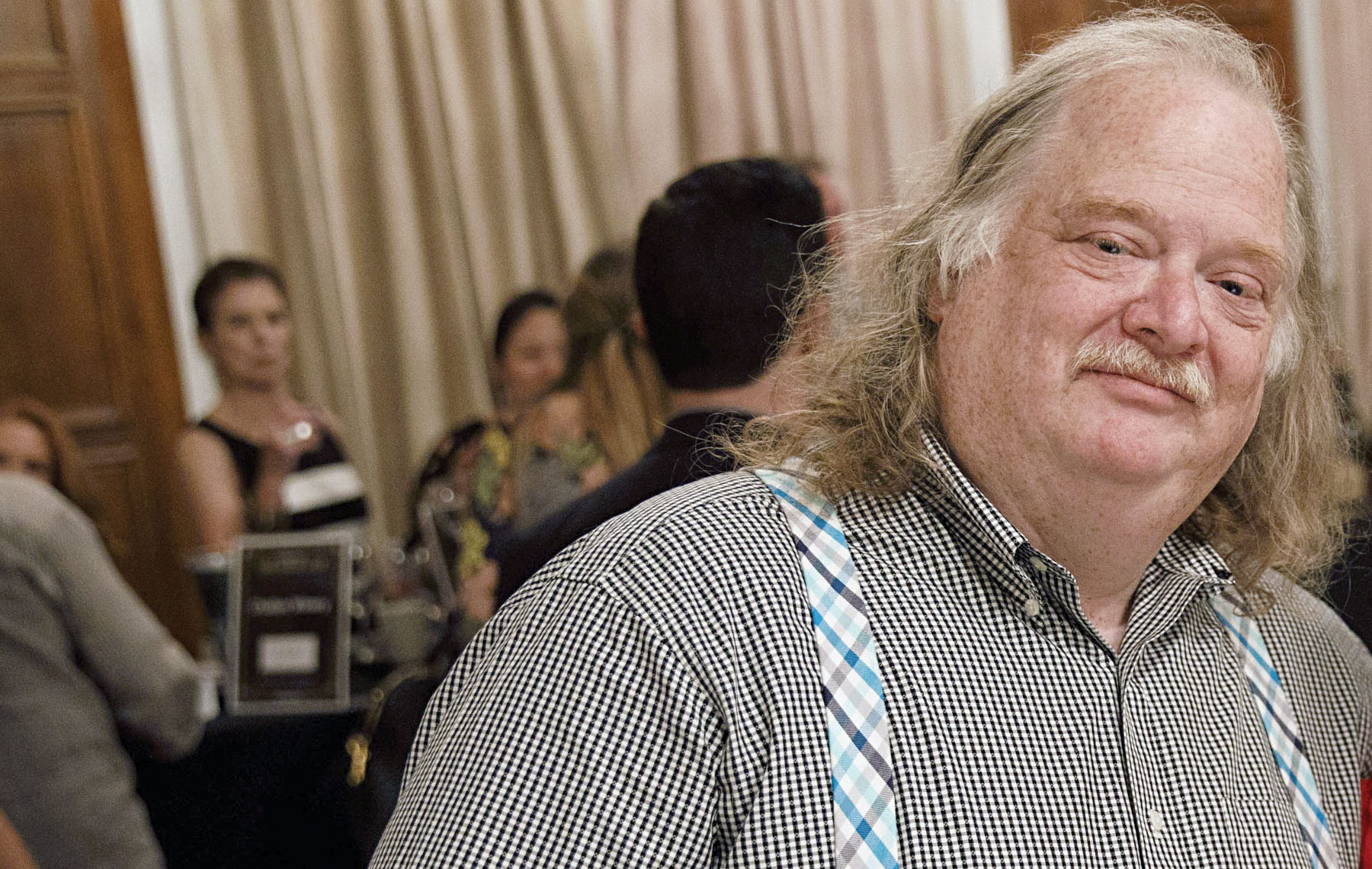
Jonathan Gold, the Pulitzer Prize-winning food critic of the Los Angeles Times, died July 21 in his beloved city at the age of 57. No sooner did the news outlets announce his death than the accolades came pouring in from all the usual sources, but some unexpected ones as well.
Often in film, food critics and their caricatures are depicted as precious, snobbish, prissy and privileged — hardly at the top of anyone’s most popular list. But Gold was not your typical food critic; he was erudite, savvy and educated yes, but an elitist food snob, no. It was a weekend of nonstop Gold coverage, not only for Angelenos, many of whom worshipped and revered him, but amazingly enough, by immigrants, by eaters of all persuasions, by other food writers and, perhaps most tellingly, by chefs.
Chefs are famous for detesting food critics, and the antagonistic relationship between chef and critic is the subject of many chef rants, particularly by celebrity chefs who no longer have anything to lose by making an enemy of a critic. It seems to be a widely held belief that it is a matter of honor for a chef to show a healthy lack of respect for food critics after the chef reaches a certain status. Yet it’s safe to say that Gold not only brought civility to his craft but also that he was among the few restaurant critics who chefs respected and wanted to please — not only for the effect a positive review from Gold would mean to that business, but that the restaurant warranted his attention and was worthy of his words.
From the perspective of a chef who has spent a lot of time in the company of other chefs listening to and participating in discussions about the ego-driven, highly competitive world of professional cooking, the fact that Gold earned the respect of cooks, many of whom credited him with knowledge about their countries’ cuisine that surpassed their own, speaks volumes. What’s more, some food writers (another special breed of egomaniac I know something about) described Gold with reverence, calling him a leading cultural anthropologist of our time.
Sure, I’d read plenty of Gold’s reviews and loved them all. Those of us not fortunate to live in Gold’s Los Angeles know its finer glories only through his writing, imagining the flavor of the upper lip sweat-inducing dishes he recommended at the off-the-radar restaurants and food trucks he wrote about. Gold was so adept at reeling in readers with his voracious curiosity, pop culture references and genuine passion for food, it was impossible for distant readers not to feel tortured when realizing the dish he’d described was thousands of miles away. Still, Gold’s writing style, original and captivating as it was, didn’t explain the extensive television and newspaper coverage and the letters that were amassing online from his millions of fans, not only in Los Angeles but in every part of the country.
It seemed that there was a lot more to learn about the cultured Jewish kid who was raised in South Los Angeles and spent his time eating his way up and down Pico Boulevard. In an effort to understand Gold’s “rock-star status” and the bereavement of his fans, I watched “City of Gold,” the 2016 documentary about Gold’s ardent obsession with Los Angeles food culture.
Within 10 minutes, I understood what all the fuss was about. In the film, which follows him driving his green pickup on a magical mystery tour of the city’s less glamorous neighborhoods, we meet people whose lives were turned upside down by a visit from the disheveled and ever-curious writer. Armed with nothing but his bottomless pit of a stomach, with only a few tweets and rumors to go on, Gold introduces us to immigrants who have fled revolutions and poverty in their own countries only to face unimaginable hardship in ours.
Gold understood that the power of food to unite us was perhaps our last chance to mend the fences that politics have broken.
An Ethiopian cook who manages to put her son through medical school only to find that her business is flailing after 9/11 gets the attention she deserves for her doro wat (spicy chicken stew.) We meet an Alain Ducasse-trained chef who has left a career in fine-dining establishments to open a taco truck serving Michelin-quality tacos. We see Gold devour hot dogs from street carts while lamenting the demise of the city’s street vendors while almost in the same breath reveling in the regional salsa prepared by the grandmother of a tattooed restaurant owner.
All the while, what we can relate to as Gold speaks to and about the small business owners he visits is his empathy, his fairness and how much he cares about the people in these restaurants and stands. Yes, the film is full of mouth-watering food, but it is Gold’s concern and interest in justice for people that’s revealed. In his clever, ongoing dialogue with the viewer, it is Gold’s love for diversity, his batting for the little guy to succeed, and his generosity that stands out even more than the food we came for.
It occurred to me that this was the secret to Gold’s triumph and why he was so beloved on both coasts by both professional cooks and food-experience chasers alike. Aside from what can be described as an obsessive, passionate love for his city, what clicked among his legions of fans and linked them to him was the depth of his humanity. Using food to bridge the vast gap between the insular immigrant communities of Los Angeles and their counterparts from upscale ZIP codes, Gold uncovered and illuminated a basic truth about the power of food to connect communities, even after riots had torn them apart.
It seems that beneath his almost childlike reactions to titillating his fans by knowing where to find the best squirming octopus tentacles, stir-fried grasshoppers, bone marrow-infused pozole and slimy hagfish, what Gold really wanted to give us was a taste for greater human connection. Gold didn’t write about these foods just to impress us with his adventurous palate. After all, eating raw fish would have been anathema to most Americans 50 years ago. Yet our love for sushi seems to have bridged what once seemed like an unbridgeable gap with the Japanese. Gold tried to remind us that when we eat the food of other cultures, study them and try to learn about them, we feel connected to those people.
When we savor the food of another person’s culture, we can’t help but fall a little bit in love with that person and the story that brought them into our lives. It’s easy to understand how a whole world of readers fell a little bit in love with Gold for insisting that we stop seeing our differences as barriers, drive to another part of our city, eat something new and learn about our neighbors. Gold understood that the power of food to unite us was perhaps our last chance to mend the fences that politics have broken. Judging by the reaction to his passing, it seems that a lot of us have already been unwrapping his gift to the world for a while now, one bite at a time, one taco after another.
Yamit Behar Wood, an Israeli-American food and travel writer, is the executive chef at the U.S. Embassy in Kampala, Uganda, and founder of the New York Kitchen Catering Co.























 More news and opinions than at a Shabbat dinner, right in your inbox.
More news and opinions than at a Shabbat dinner, right in your inbox.